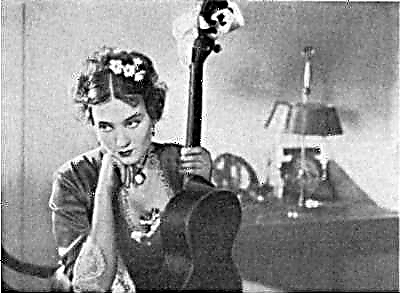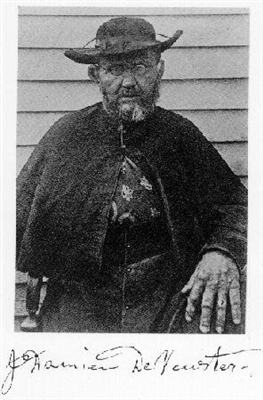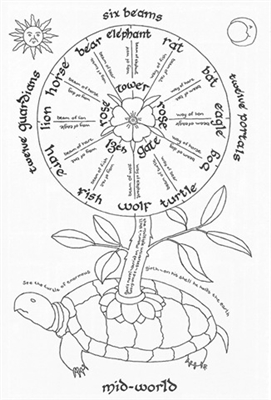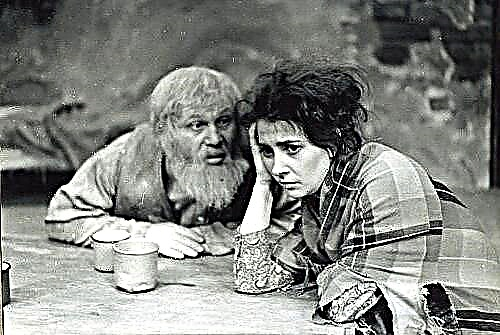: For the school museum, the pioneers steal the last letter sent to the mother of her son who died in the war. An old blind woman who has lived a life in a strange, but responsive family, dies, having lost the symbol of love.
Igor went to the front in the morning of October 2, 1941. He was escorted by the entire communal apartment. Neighbor Volodya, sent to the rear with a severe wound, gave him men's advice - there was no one else to do this, Igor did not have a father. Standing in the open doors of the communal apartment, Anna Fyodorovna watched the flexible, boyish back of her son.
She received from Igor the only letter in which he wrote about the war and asked to send the address of Rimma from a neighboring entrance - she wanted, like other soldiers, to receive letters from the girl. Anna Fedorovna received the second letter from Sergeant Vadim Perepletchikov. He wrote about the death of his friend Igor. A week later a funeral came. Mourning her son, Anna Fedorovna “stopped screaming and crying forever.”
She used to be an accountant, but in 1941 she voluntarily went to work as a trailer operator at Savelovsky Station, and she stayed there. The woman shared her grocery cards with the five orphaned families of her apartment, whose spacious kitchen "bitterly celebrated communal commemoration." Five widowed women by the "living wall" protected their children from death.
Of all the men in the communal apartment, only Volodya returned. He soon married Rimma from a nearby porch. Anna Fedorovna hardly put up with this - for her, Rimma was Igor's girlfriend. Every evening she reread letters from Igorka and Sergeant Perepletchikov. The paper was completely frayed, and Anna Fedorovna made copies that were in the folder on the nightstand. She hid the originals in a box where her son's things were stored.
The neighbors did not forget about Anna Fedorovna. Only once did the insult “run through a black cat”. Vladimir, at whose wedding Anna Fedorovna was a planted mother, promised to name her firstborn Igor, but Rimma was against and secretly wrote down her son Andrei - in honor of the deceased father. For almost half a year the woman did not notice the baby. Once Andryushka fell ill. The young mother ran to Anna Fyodorovna for help, and since then she has become a "real grandmother" for the boy. Rimma promised to call Igor her next child, but the girl Valechka was born.
As time passed, the residents of the communal apartment changed, and only two families did not budge. Vladimir and Rimma understood that Anna Fedorovna would never leave the apartment where her son had grown up. “By the early sixties, they finally managed to get the whole five-room apartment” with the condition that one room be converted into a bathroom. At the family council, they decided that Anna Fedorovna, who had retired, would not work anymore, she would have to look after her grandchildren.
The woman read the letters every evening. It turned into the ritual she needed. Letters sounded for Anna Fedorovna with the voices of her son and an unfamiliar sergeant, only the funeral was always silent, like a gravestone. The woman did not dare to admit this habit to a younger apartment.
In 1965, on the anniversary of the Victory, a lot of military chronicle was shown on television, which Anna Fedorovna never watched. Only once she glanced at the screen, and it seemed to her that Igor's narrow boyish back flashed there. Since then, the woman sat all day close to the small screen of the KVN television, hoping to see her son again. This was not in vain for her. Anna Fedorovna began to go blind, and soon the letters ceased to sound. The glasses prescribed by the optometrist helped to walk, but she could no longer read.
By this time, civil engineer Andrei was married and moved, and Valya, who became a doctor, "gave birth to a girl without any marriage." For the completely blinded Anna Fedorovna, the fatherlessness of Tanya became the last joy. When Tanya learned to read, the woman showed her the coveted letters. Now the girl read them aloud every evening, and the voices of the letters returned. Anna Fedorovna recalled the first steps of her son, his first question, “Where is dad?” The woman was not painted with Igor’s father; he left her when her son was three years old. She exchanged her large room and ended up in a communal apartment, where she called herself a widow. Anna Fedorovna recalled how Igor and Volodya fled to Spain, to beat the Nazis, his school years, and life after his death.
Soon, Anna Fyodorovna celebrated the eightieth birthday. Rimma invited everyone who still remembered Igorka, and the woman was happy. 1985 passed, the next anniversary of the Victory. Once, pioneers, a boy and two girls, came to Anna Fedorovna and asked to show letters. Then one of the girls began to demand that Anna Fedorovna send letters to the school museum. She believed that the woman didn’t need letters, because she was already old and would die soon, and these documents were necessary for their link to fulfill the plan. Anna Fedorovna was unpleasantly impudent assertiveness of a pioneer. She refused and drove the children away.
In the evening it turned out that the letters were gone. They were stolen by pioneers. Anna Fedorovna vaguely remembered how they were whispering at the dresser where the casket lay. Around Anna Fedorovna silence reigned. She no longer heard her son’s voice. But soon another voice sounded, loud, official - it was the funeral that spoke. Tears continued to slowly flow down Anna Fedorovna's cheeks even after she died.
And there was no place for letters in the school museum. They were put off in reserve, marked with the inscription "Exhibit No.".








 Blue ocean strategy
Blue ocean strategy


